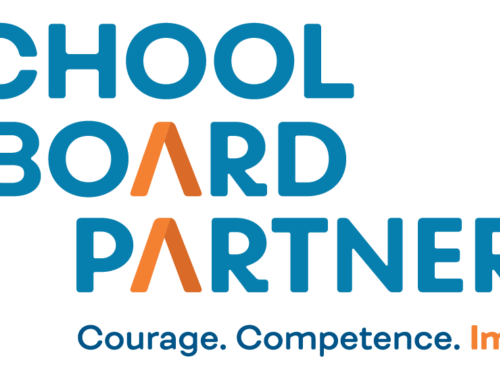As a consultant and policy advisor for school board members across the country, I have a unique perspective on how the actions of school boards – or lack thereof – are impacting the quality of our public education systems. I offer the following reflections not only for educators but for any citizen in our country that cares about the quality of their local public schools.
One of the most important responsibilities of a local school board is to conduct an annual evaluation of the superintendent. A strong evaluation process clarifies expectations for the superintendent’s performance in alignment with the vision and goals for the district. The evaluation is also an opportunity to identify ways the board can support the superintendent’s leadership and professional development.
The superintendent evaluation is one of the most powerful levers of accountability at the school board’s disposal, yet too often, I observe school boards without rigorous evaluation processes. Alarmingly, I frequently see school boards that fail to conduct an annual evaluation at all!
School boards that do conduct evaluations with regularity typically base the evaluation primarily on a survey, often published by the state school board association, containing some variation of “leadership domains” with associated rubrics. These domains have titles like “Instructional Leadership” or “Communications and Community Relations” and a laundry list of expectations that are essentially a long job description for what any superintendent should do on a day-to-day basis. If a school board wants to evaluate whether or not a superintendent is “doing his/her job,” – these tools may be an effective assessment.
However, what really matters is not whether or not the superintendent is “doing the job” but whether all schools in the district are achieving ambitious goals for student outcomes. So why are so few school boards basing the evaluation on quantitative metrics of student outcomes?
Research on the effect of superintendent leadership on student achievement shows the most successful superintendents create, monitor, and hold staff accountable for student achievement goals. School boards must do the same with their superintendents.
Based on my experience as a school leader, school board member, and advisor to school boards, I have found there are 3 key components in any high-quality superintendent evaluation process:
- Measurable Goals – the evaluation should be primarily (or entirely) based on measurable performance goals that encompass student achievement, learning growth, college and career readiness, and indicators of educational equity such as eliminating racial disproportionality in student outcomes.
- 360 Feedback – the evaluation should include anonymous feedback from a variety of stakeholders with different perspectives on the superintendent’s performance as a leader, including direct reports, school leaders, teachers, parents, and students. This feedback is critical for the board to understand what is happening “on the ground” in the daily experiences of children, families, staff, and the community.
- Professional Development Plan – to date, I have not come across ANY school boards that actively implement and invest in professional development (“PD”) for the superintendent beyond cursory measures such as reimbursing expenses for the superintendent to attend conferences. One of the primary benefits of collecting 360 feedback is to inform a comprehensive PD plan that maximizes support for the district’s leader to succeed. A strong evaluation process doesn’t just judge past performance – it supports the future growth and success of the leader.
I have the privilege of working with School Board Partners, a national network of 91 school board members across 63 cities representing 5.9 million students, to improve the effectiveness of school boards across the country by providing training and support, including how to conduct a high-quality superintendent evaluation.
But we can’t do it alone. Anyone reading this article is a constituent of a local school board representative. You can ask your local school board member what the board is currently doing to evaluate the superintendent, forward this article, and ask that the board raise the bar. We’d be happy to help!
There are no quick fixes to improve public school systems, but this simple action could have a tremendous positive impact on the educational experiences of children for years to come.

Related Blog Entries

Managing Climate Crises: Resources for School Boards
April 17, 2024
Ethan Ashley
Read More About Managing Climate Crises: Resources for School Boards



